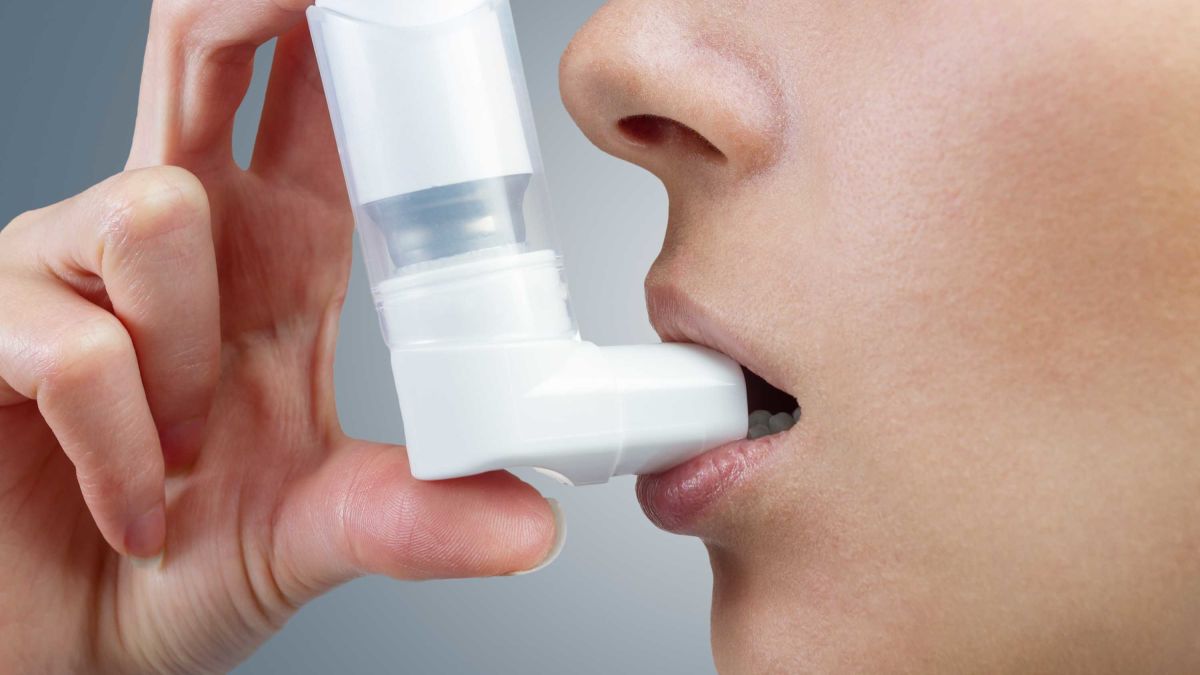What are the symptoms of wheezing?
Wheezing is a high-pitched whistling sound produced during breathing, often associated with difficulty in airflow. The symptoms of wheezing include:
- Whistling Sound: A distinct, high-pitched sound when breathing, especially during exhalation. It can sometimes be heard without a stethoscope.
- Shortness of Breath: Difficulty in breathing or feeling out of breath, often associated with wheezing.
- Coughing: Persistent cough that may accompany wheezing, particularly in conditions like asthma or bronchitis.
- Chest Tightness: A feeling of pressure or tightness in the chest, which can be related to wheezing.
- Increased Respiratory Rate: Rapid or labored breathing, often observed during wheezing episodes.
- Difficulty Breathing: Struggling to get a full breath, which may be noticed especially during physical exertion or at night.
Wheezing can be a sign of various respiratory conditions, including asthma, chronic obstructive pulmonary disease (COPD), bronchitis, or allergic reactions. If wheezing is persistent, severe, or associated with other symptoms, seeking medical evaluation is important for proper diagnosis and treatment.
What are the causes of wheezing?
Wheezing can be caused by a variety of conditions that affect the airways and lung function. Common causes include:
- Asthma: Chronic inflammation and narrowing of the airways lead to wheezing, along with other symptoms like cough, shortness of breath, and chest tightness.
- Chronic Obstructive Pulmonary Disease (COPD): This group of diseases, including emphysema and chronic bronchitis, causes obstruction of airflow and wheezing.
- Bronchitis: Inflammation of the bronchial tubes, often due to infection, can cause wheezing, especially if the airways become narrowed.
- Allergic Reactions: Allergens can trigger inflammation and constriction of the airways, leading to wheezing.
- Respiratory Infections: Viral or bacterial infections affecting the respiratory tract, such as the common cold or pneumonia, can lead to wheezing.
- Environmental Irritants: Exposure to smoke, pollution, strong odors, or chemicals can irritate the airways and cause wheezing.
- Gastroesophageal Reflux Disease (GERD): Acid reflux can lead to aspiration of stomach contents into the airways, causing inflammation and wheezing.
- Foreign Body Aspiration: Inhalation of an object or substance can block or irritate the airways, resulting in wheezing.
- Anaphylaxis: A severe allergic reaction can cause swelling of the airways and wheezing, along with other symptoms like difficulty breathing and swelling.
- Cardiac Conditions: Some heart conditions, like congestive heart failure, can cause fluid accumulation in the lungs (pulmonary edema) that leads to wheezing.
Identifying the underlying cause of wheezing is important for appropriate management and treatment. If wheezing is persistent or severe, it’s essential to consult a healthcare provider for a thorough evaluation.
What is the treatment for wheezing?
The treatment for wheezing depends on its underlying cause. Here are some common approaches based on different causes:
- Asthma:
- Inhaled Corticosteroids: To reduce inflammation and prevent wheezing.
- Bronchodilators: Short-acting (for immediate relief) and long-acting (for ongoing control) to relax the muscles around the airways.
- Leukotriene Modifiers: To reduce inflammation and mucus production.
- Avoiding Triggers: Identifying and avoiding allergens or irritants that may worsen asthma.
- Chronic Obstructive Pulmonary Disease (COPD):
- Bronchodilators: To improve airflow and reduce wheezing.
- Inhaled Corticosteroids: To decrease airway inflammation.
- Oxygen Therapy: For those with severe COPD and low oxygen levels.
- Pulmonary Rehabilitation: To improve breathing and quality of life.
- Bronchitis:
- Bronchodilators: To ease airway constriction.
- Expectorants: To help clear mucus from the airways.
- Antibiotics: If a bacterial infection is present.
- Rest and Hydration: To support recovery.
- Allergic Reactions:
- Antihistamines: To alleviate allergy symptoms.
- Avoiding Allergens: Identifying and avoiding substances that trigger allergic reactions.
- Epinephrine: For severe allergic reactions (anaphylaxis).
- Respiratory Infections:
- Rest and Hydration: To help the body recover.
- Antiviral or Antibiotic Medications: For specific infections as prescribed by a healthcare provider.
- Over-the-Counter Medications: For symptom relief.
- Environmental Irritants:
- Avoidance: Minimizing exposure to irritants like smoke, fumes, or strong odors.
- Air Purifiers: To reduce airborne irritants in the home.
- Gastroesophageal Reflux Disease (GERD):
- Acid Reducers: Such as proton pump inhibitors or H2 blockers.
- Lifestyle Changes: Including diet modification and avoiding lying down after meals.
- Foreign Body Aspiration:
- Immediate Medical Attention: To remove the object if it is causing significant airway obstruction.
- Anaphylaxis:
- Epinephrine: Administered immediately in case of severe allergic reactions.
- Follow-Up Care: To monitor and manage any ongoing symptoms.
- Cardiac Conditions:
- Treatment of Heart Failure: Includes medications to manage fluid buildup and improve heart function.
- Lifestyle Changes: Such as a heart-healthy diet and exercise.
For effective treatment, it’s important to diagnose the underlying cause of wheezing accurately. A healthcare provider can help determine the appropriate treatment based on individual needs and medical history.

Leave a Reply
You must be logged in to post a comment.